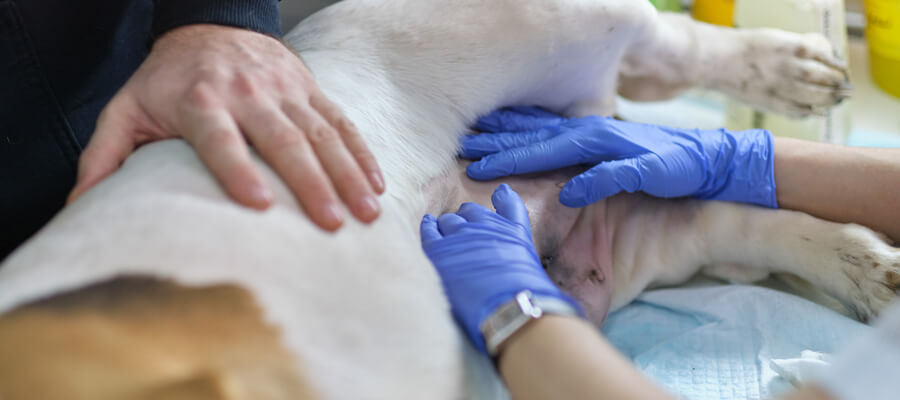Spaying your female canine or feline is one of the best things you can do for your pet’s health. However, pyometra is a disease of which every pet parent with breeding pets needs to be aware. In 2014, the NCBI (National Center for Biotechnology Information) found that about 25% of intact female canines are affected by pyometra before the age of ten.
What is Pyometra?
Pyometra is an infection that develops in the uterus. The uterus fills up with pus and can cause kidney failure, toxemia, and dehydration. It’s considered to be a life-threatening condition and needs to be treated aggressively and right away.
It should be known that the uterus is most susceptible to infections one to two months after a heat cycle.
Two types of pyometra
- Open — The dog or cat’s cervix stays open, and an infection can drain out. The pet parent sees the discharge and will likely be able to smell an unpleasant odor.
- Closed — The cervix stays closed and the infected content of the uterus cannot drain. A pet parent will see their pet have a bloated abdomen. This lack of drainage can become toxic because the bacteria that are trapped in the uterus can be absorbed into the dog's bloodstream.
Symptoms
- Lethargic or appears depressed
- Sudden loss of body weight
- Increased water intake and urination
- Pale mucous membranes
- Vaginal discharge is bloody or white/green in color
- Mucous or bloody discharge with a pungent odor
If you observe any of these symptoms in your female pup, get them to a veterinarian right away. Your veterinarian may take radiographs (X-rays), but an ultrasound is the preferred way to diagnose a pyometra.
Treatment
Surgical hysterectomy (spay) is the most common treatment for pyometra. The veterinarian will most likely remove the entire uterus but may opt to only remove a portion of the uterus depending on the circumstances.
What if you want to breed your dog/cat in the future, are there alternative treatments?
There is an alternative treatment, but it is not recommended because the chances of reinfection are so high. If pyometra is diagnosed early enough, a regimen of prostaglandin (a hormone that can lower progesterone levels, open the cervix, and contract the uterus—which all help the uterus to expel the infection) is given over the course of a week or so under the observation of a veterinarian. This sort of treatment option is only reserved for younger, valuable breeding dogs. For canines, the possibility of a successful pregnancy after this treatment is between 50% to 65%, for felines, they generally return to normal fertile status. Prostaglandin is not without side effects and risks; your veterinarian will help you make the best decision for your pet.
Just in case you are wondering, humans can get pyometra, however, it is extremely rare.
